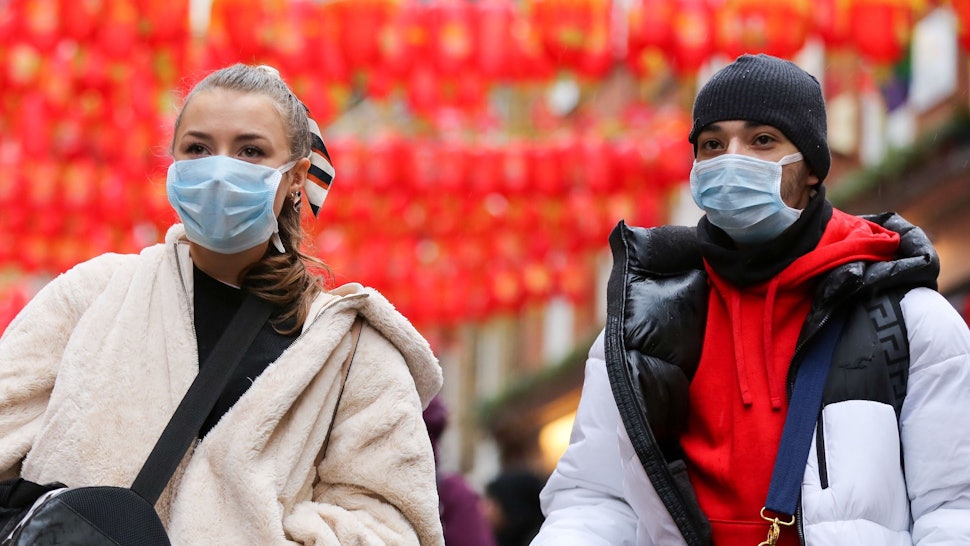
Does Wearing A Face Mask Protect Against Coronavirus?
Editor’s note: This article has been updated in light of the January 2020 coronavirus outbreak.
If you live in a city, it’s likely you’re constantly on high alert about germs, especially with seasonal outbreaks of flu (or influenza, as its otherwise known), or the international spread of pandemics such as SARS, swine flu, and, most recently, the coronavirus. But does wearing a mask protect from flu or coronavirus?
According to the Centre for Disease Control (CDC), masks of this type are designed to stop the spread of “virus droplets”, globules of bodily fluids “generated when infected persons speak, cough, or sneeze. These droplets, the CDC warns, "can be deposited onto the mucosal surfaces of the upper respiratory tract of susceptible persons who are near the droplet source." Basically, transferring these droplets from one person to another can cause the recipient to become ill.
However, back in Dec. 2018, Bustle reached out to experts over at Public Health England to find out more about wearing masks and what their effects are. In response, they pointed towards a study they carried out that found that "[t]he evidence base regarding the effectiveness of face masks by the general public was observed to be particularly limited."
The official line with regards to flu prevention, recommended by Dr Richard Pebody, Head of Flu at Public Health England, is: "As well as getting the flu vaccine, practising good hand hygiene by catching coughs and sneezes in a tissue, throwing it away and washing your hands after can help limit its spread — catch it, bin it, kill it.”
When it comes to protecting yourself from flu, three rules have been embraced by the NHS:
- Catch it — catch the germs when you cough/sneeze by using a tissue.
- Bin it — throw it away carefully after you have used it, ensuring it does not contact anyone else.
- Kill it — wash your hands carefully with antibacterial hand soap to kill the germs that are lingering post sneeze. In addition, a flu vaccine is recommended by the NHS for people "aged 65 and over, pregnant women, children and adults with an underlying health condition (such as long-term heart or respiratory disease), and children and adults with weakened immune systems."
Throughout the latter half of January 2020, it’s been impossible to get away from news about the spread of coronavirus. At the time of writing (Jan. 31), at least 213 people in China have died from the virus, with almost 10,000 cases recorded nationally. There have been 98 cases in another 18 countries and the first two cases have now been reported in the UK. While coronavirus isn’t the flu, it does cause flu-like symptoms in those who have contracted it. So, would wearing a surgical mask prevent you from catching coronavirus?
According to CBS News, the face mask industry is booming at the moment, with people investing in order to protect themselves. However, speaking to the BBC, a Public Health Wales (PHW) spokesman said:
“[T]here’s insufficient evidence to suggest that there is any benefit to members of the general public from wearing a face mask. The risk to the general public from the N-CoV infection [another name for coronavirus] remains low. Public Health Wales would not encourage people to buy or start wearing face masks unless they have been directed to do so by a clinician."
A spokesperson at Boots has told the BBC that, when it comes to protecting yourself against coronavirus, you should “regularly wash your hands with soap, and avoid touching your eyes, nose or mouth to prevent transmission from surfaces, especially after blowing your nose, sneezing and coughing.”
This article was originally published on Dec 7, 2018